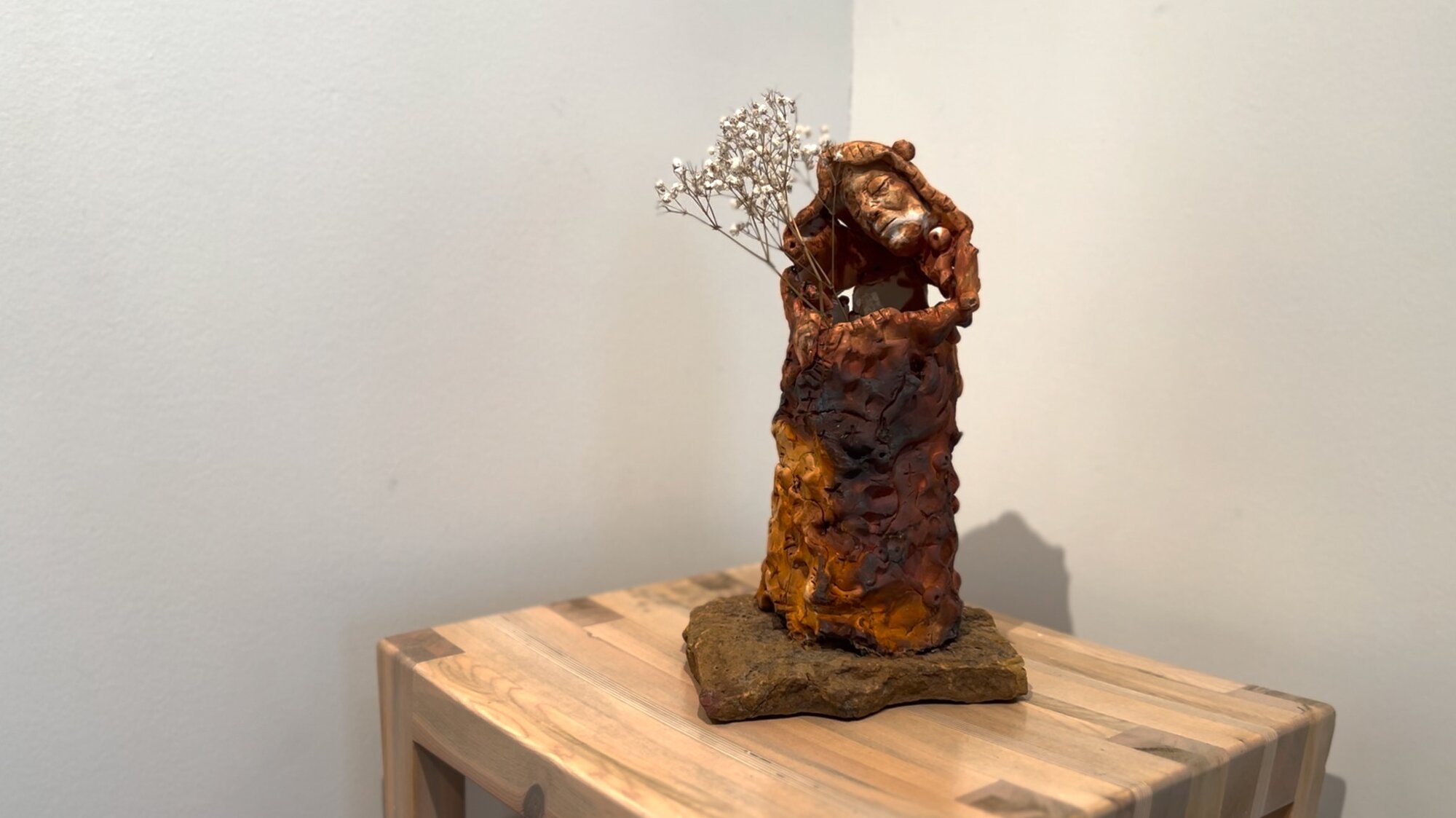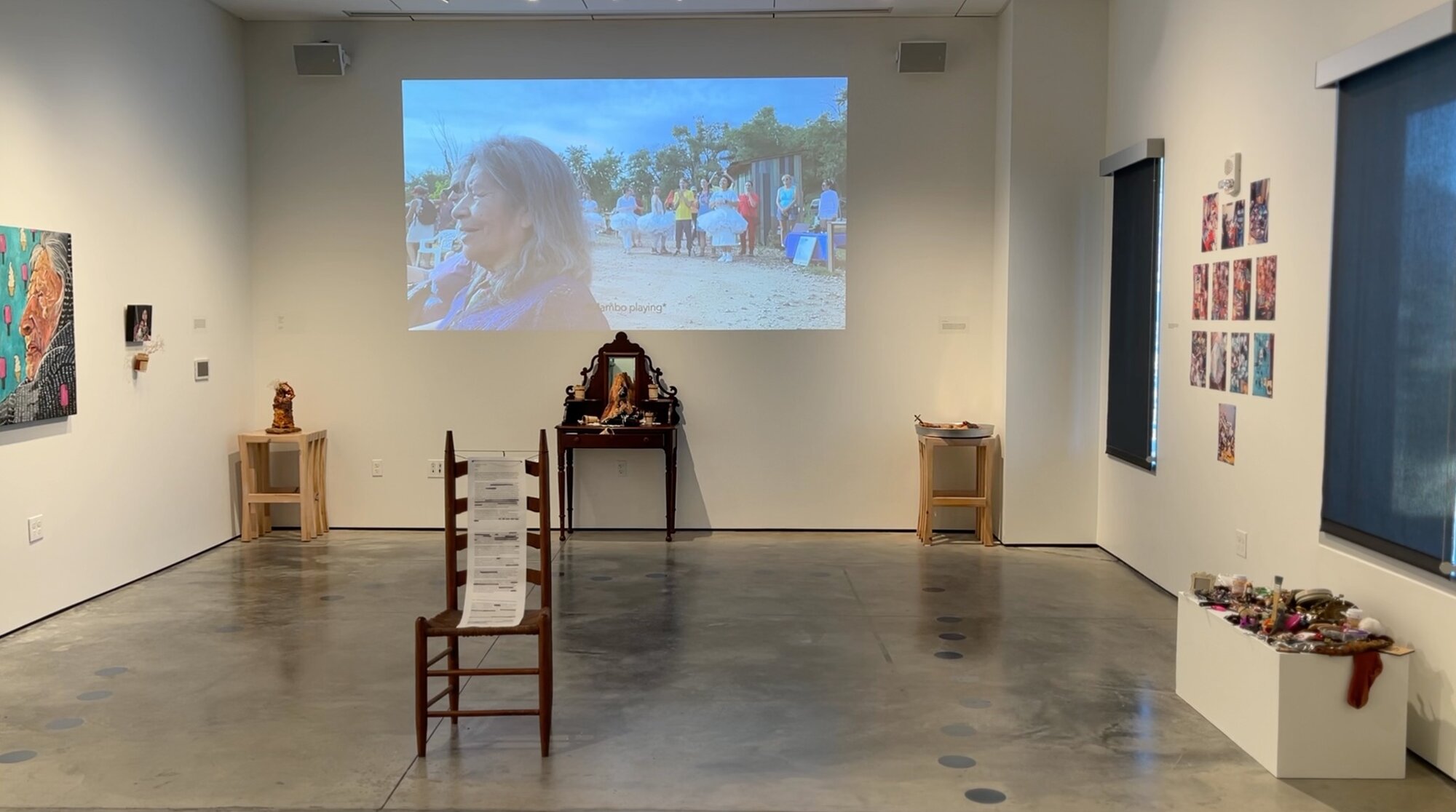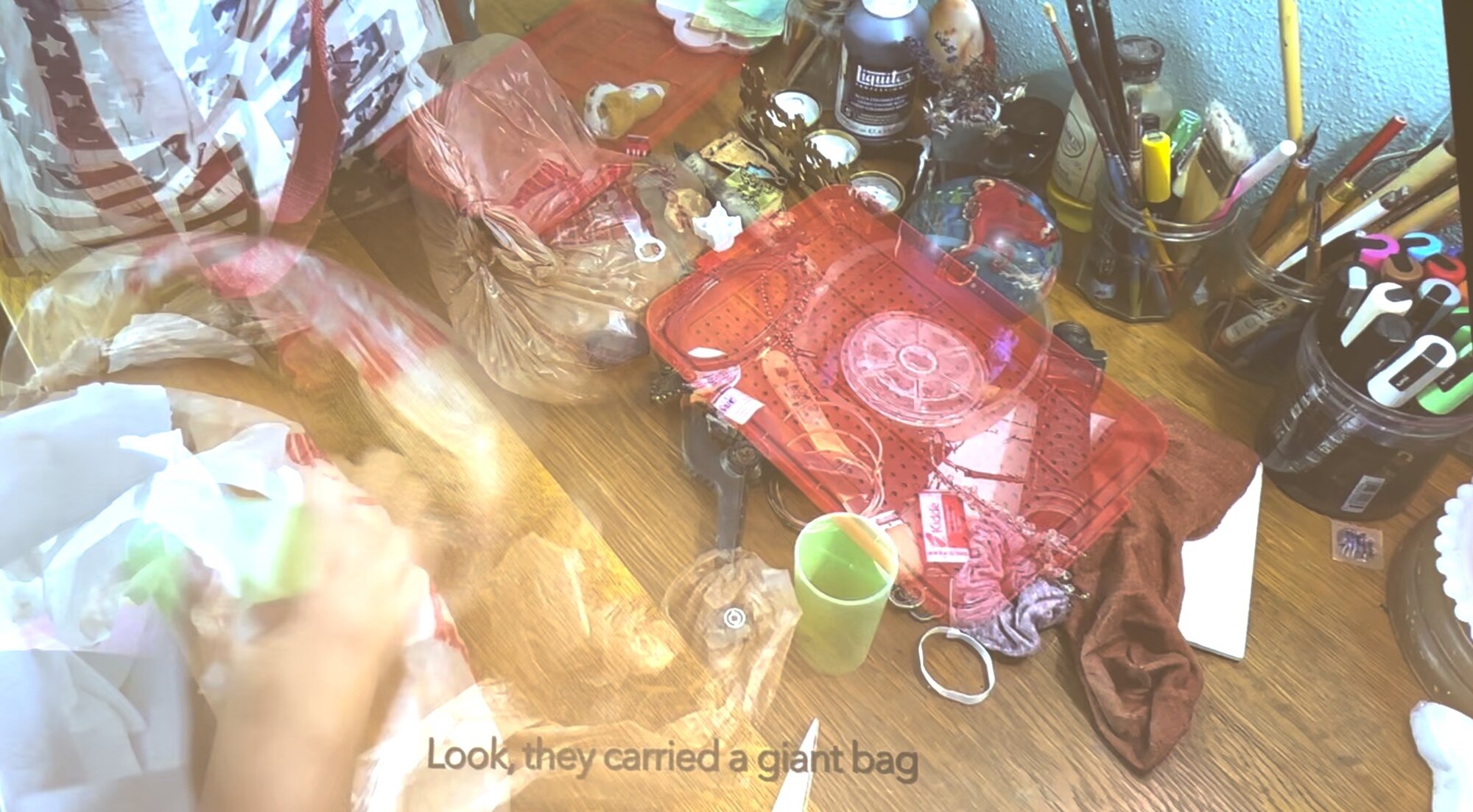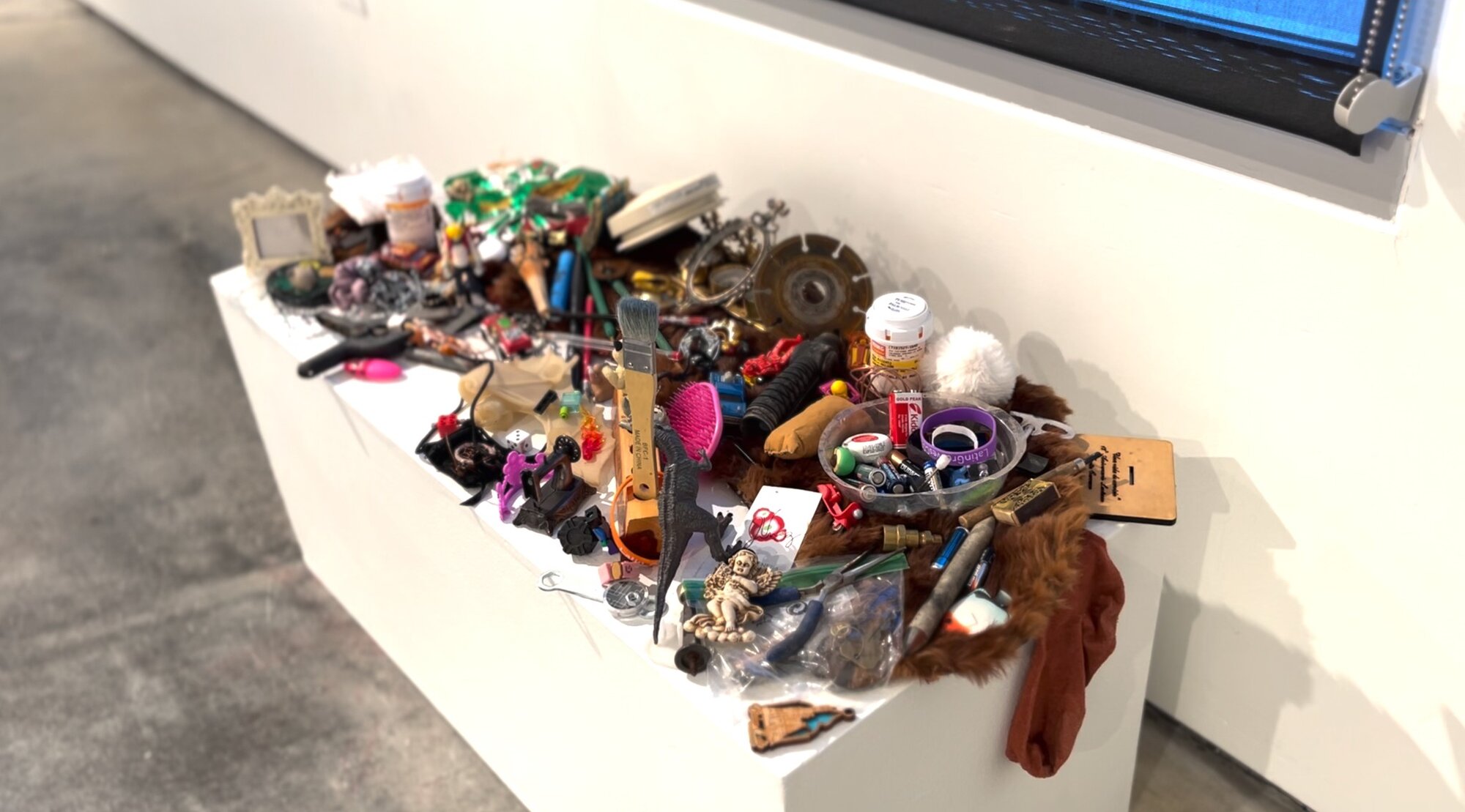A lifelong process of letting go

COLORADO SPRINGS, Colo. — In 2002, answering the desperate pleas of two aunts, artist Lupita Carrasco arrived at her grandparent’s home in Mexico. Seven years after visiting her siblings and refusing to return, her mother’s longstanding hypothyroid and schizoaffective disorder had taken over.
Under the weight of her mother’s illness, the once joyful family estate was shred into a depressing and run-down condition. Carrasco was shocked.
In those seven years, “my mother had cut all the buttons and zippers from her sibling's clothing,” Carrasco said. “She stole objects like keys, lightbulbs, doorknobs and even a cherub sculpture that she broke off the wall of the church in her hometown.”
Religious imagery and ritual, Carrasco explained, is a particular focus during her mother's hallucinatory states.
“Her illness got really bad in my teen years, and she was doing a lot of really bizarre and destructive things,” Carrasco said of her youth in San Diego. She moved out at 17, pregnant with the first of her seven children. “She destroyed a lot of my things — like my artwork, my clothing, and anything that meant anything to me.”
When her aunts reached out for help, Carrasco felt some validation — her family had long denied her mother’s illness, projecting Carrasco as problematic when she asked for caregiving support. But by the time she was able to coax her mother back to the United States, “she had also developed diabetes, and a severe infection in her mouth from tooth decay after years of refusing any form of medical care,” Carrasco said.
At this point, Carrasco knew her commitment to bring her mother home would mean taking on full-time caregiver role — a big shift for her growing family.
Carrasco became, in her words, "a mother perpetually caught between raising her own children and mothering a parent." Her world became saturated with medication schedules, a seemingly endless steam of physical and mental care appointments, missing items around the house, outbursts, and chaotic behaviors.
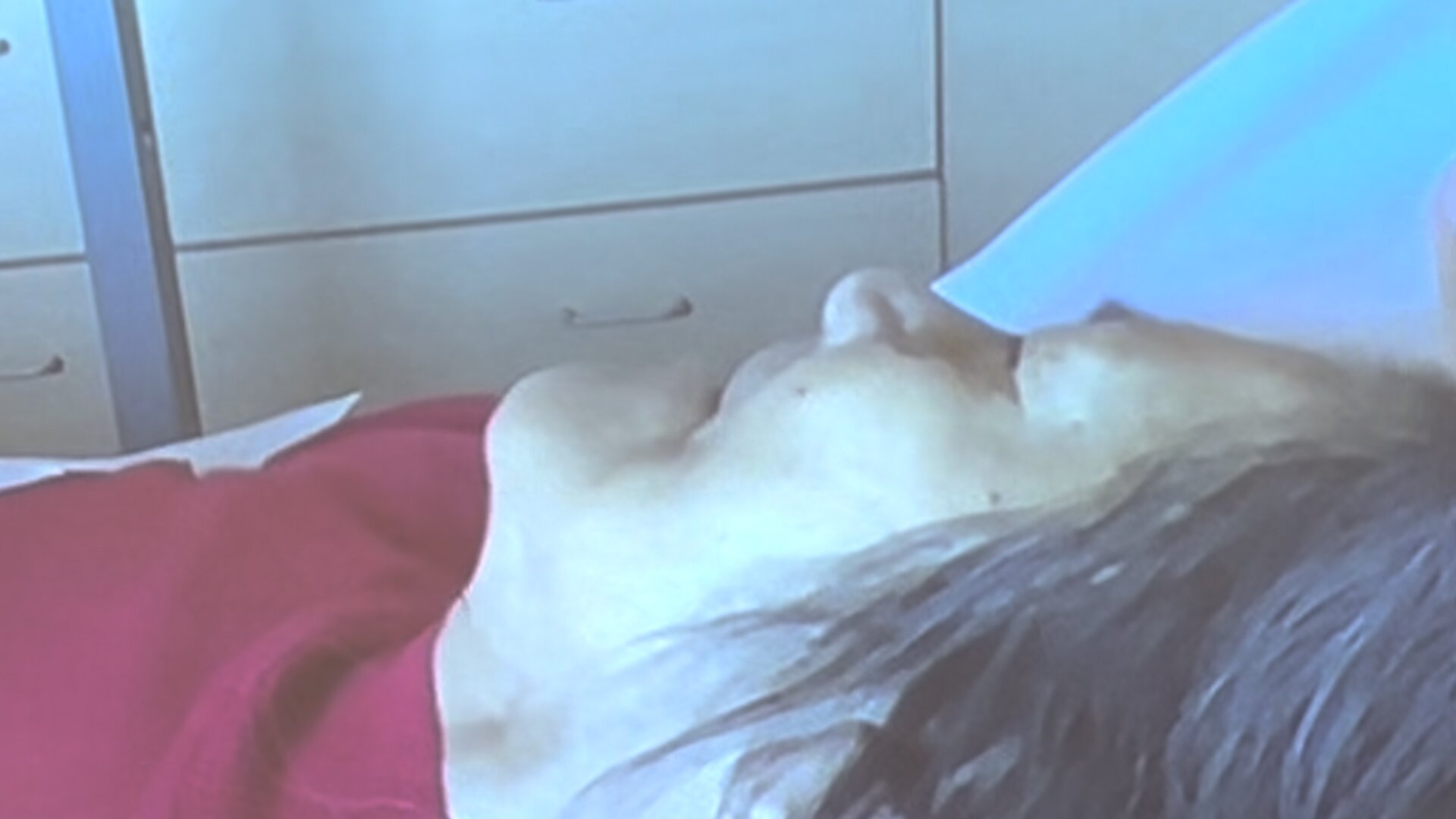
The resulting multi-disciplinary art exploration "Expressions On Caring" was on display for a week in March at the Project Space of the Ent Center for the Arts, a pop-up exhibition room lending itself to the intimate reflections of a lifelong process of letting go.
“'Expressions On Caring' is a singular, personal view into the everyday realities of my caregiving experience,” Carrasco said. “What is it to care? How does the act of giving time and energy affect the sense of self?”
She dug in to those reflections each night, pulling out her sketch book after taking care of her mother and family. "I would stay up after everybody went to bed and do these drawings of what I felt that day, and what I was going through,” she said. “I drew my feelings about caring for my mom, my feelings about my self-worth, how isolated I felt, and just how painful and lonely this whole journey and process with her has been.”
“For example, my mom will take a regular prayer, and embellish it to the point where she can't finish it, almost, because she feels like it needs to be said a specific way,” she said. “I guess some people might look at it as being tormented by demons, but to me it's almost like she exists in different realities.”
Carrasco, who said she sometimes describes her mother's transport to alternative mental dimensions as "time traveling," said she's long wanted to "shed light on the individual, yet also universal, nature of caregiving. If you have been in a caregiver role, your struggle is simultaneously unique and universal.”
Two decades later, she was ready to look at her vulnerable family experience in-depth.
Paging through her filled sketchbook, “I was like, ‘This is important,’” Carrasco said. “You do need to walk through the pain. You can't go around it. It has to be dealt with.”
Carrasco's nighttime sketchbook practice inspired a wave of inter-disciplinary ideas she envisioned in a gallery space or museum. To bring her greater vision to life, Carrasco applied for and received a grant from the Provincetown Art Association and Museum an Arts Vision 2030 award to complete the exhibit, one of only two individual artists selected for the local grant program. (The other, Sophia Hannah, currently has an exhibit at Kreuser Gallery in downtown Colorado Springs.)
Curated by former Gallery of Contemporary Art director and chief curator Daisy McGowan, the opportunity to present at the Project Space in the Ent Center for the Arts “allowed for growth and exploration, and I’ve taken that to heart,” Carrasco said. She created the body of work "in a very personal manner,” she noted, using her sketchbooks as a launch point for sculpting, ceramics, photography, painting, installation, film, and more.
Along with her vast toolbox of mediums, Carrasco approached the work from another angle — regular sessions with a licensed therapist, who supported a holistic approach to the healing experience of art-making.
“When I started doing the show, I was like, ‘I need a therapist for this,’” Carrasco acknowledged. “And that really helped me process so much of the pain. I had so much resentment, and so much anger, even while in my service to my mother as I cared for her as lovingly as I could.”
Through it all, Carrasco said she began “to find a way back to that unconditional love I had for my mother as a child. It may not be the same … but I want to get through the fact that her illness is not her fault, and that so much of how she hurt me and continues to hurt me is directly tied to that illness. And I want to learn to love me, and respect myself and my boundaries,” she acknowledged.
Carrasco's therapist guided her to complete an “empty chair exercise,” wherein she composed a letter to her mother detailing the anguish, hurt and forgiveness tangled into childhood experiences of neglect and abuse. Reading the letter aloud to an empty chair in her therapist’s office, Carrasco felt decades of pent-up feelings and energy release from her body.
"I wrote the letter in stages, in between making meals, and while in line waiting to pick up my kids from school," she said. "It was a very personal and painful journey of exploration and revelation.”
Taking in the completed exhibit, Carrasco said, “When I look at these images, I don't feel the same way anymore. But I do wonder, ‘Do you know that we're here? Do you know how lucky you are to have these people that love you, and to be around your grandchildren? And to be around so much love and so much joy, and and so much beauty?’”
Carrasco’s artistry strikes with color, intentional movement, and being held by nature, with themes of friendship, family, celebration, and spirituality throughout. For the exhibit, Carrasco also unbundled hundreds of the tightly wound cloths and bags her mother creates from objects she picks up around the house, a task that took hours and that Carrasco documented in a short film.
She displayed the objects in photo, and in an alter installation. “My mom had these huge shrines of what looked like clutter, but it was all attempt at prayer,” Carrasco said.
Now, Carrasco hopes to bring this show to a group format, exhibiting “with other artists who have experienced or are experiencing the the very heavy feelings that come with caregiving.” She said she'd love to see health professionals involved, and to be able to showcase available regional resources and support networks, which she said are few and far between.
“It's my hope that more people will recognize that the giant, exhausting responsibilities and sacrifices lived by those of us who choose to do this work are not inevitable,” she said in an artist’s statement. “With the active support of both family and community, the burden of caregiving can be lightened, preserving the caregiver’s health and bringing better care for longer.”
Expressing some of her deepest wounds, “I’ve worked through this in a way that brought true healing to myself,” Carrasco said. “That's where the healing begins — in not keeping it in the dark, not keeping it silenced.”
Kate Perdoni is a Senior Regional Producer with Rocky Mountain PBS and can be reached at kateperdoni@rmpbs.org.
Related Stories
